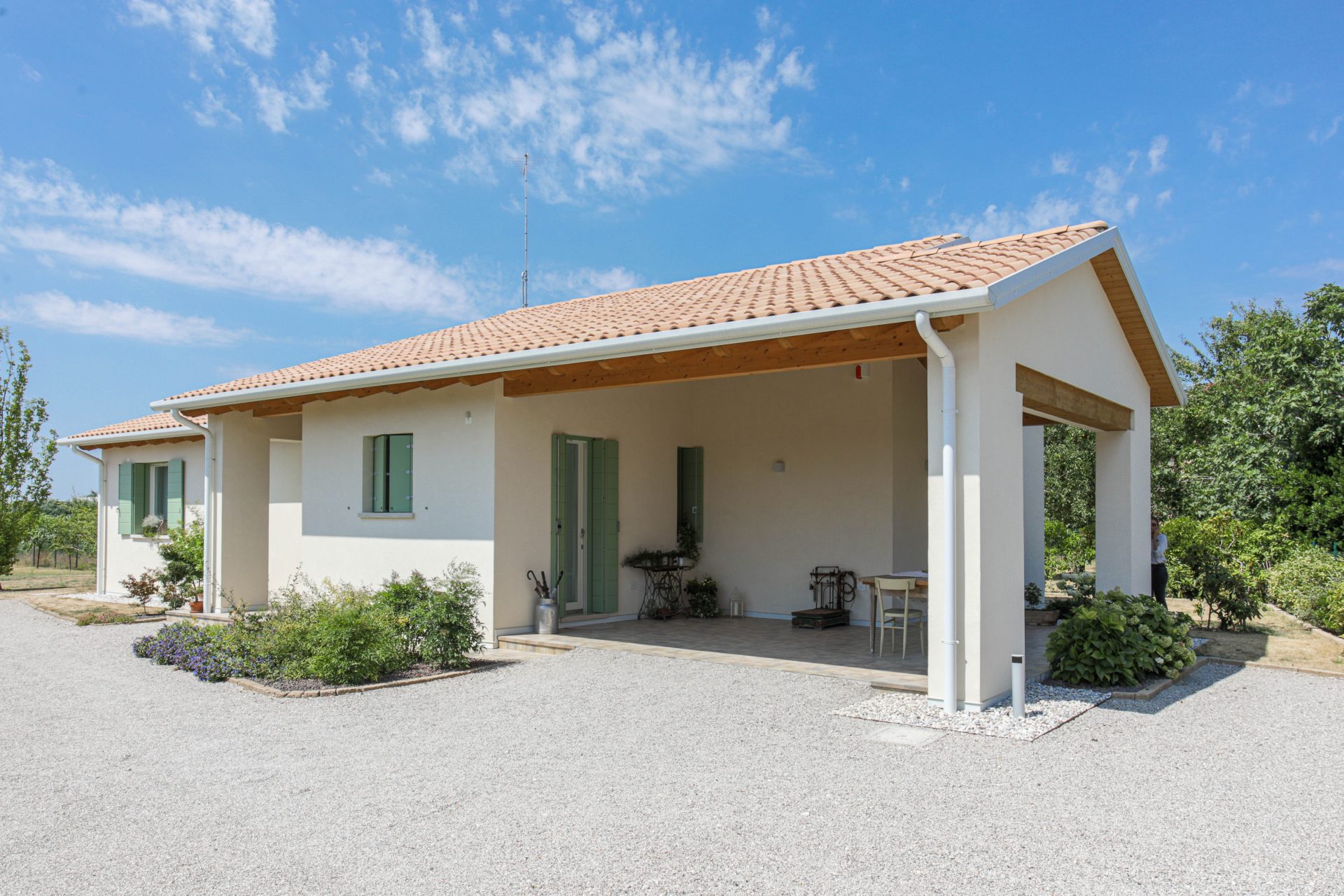Choosing a wooden house means choosing a healthy home
In addition to all the positive aspects of a more technical/economic level already mentioned, wooden houses are highly appreciated for other reasons, including their living comfort and the positive effect on the health and psychophysical well-being of all their occupants. Here are some key points regarding the health and comfort of wooden houses:
- Thermal cushioning: Wood is an excellent natural thermal insulator, which helps maintain a comfortable internal temperature in all seasons. Wooden houses tend to be easier to heat in the winter and cool in the summer than many other types of construction.
- Humidity regulation: Wood has the ability to absorb and release moisture naturally, helping to maintain an optimal indoor humidity level. This can have a positive impact on respiratory health by preventing excess moisture build-up that could encourage the growth of mold or mites.
- Nontoxic Materials: Wooden homes often use natural, nontoxic building materials, thereby reducing exposure to chemicals found in some synthetic or chemically treated materials used in other types of construction.
- Cleaner Indoor Air: Because wood doesn’t emit harmful gases, the air inside a wooden home tends to be cleaner and less polluted than homes built with synthetic materials.
- “Biophilic” effect: The presence of wood in a home can help create a welcoming and comfortable atmosphere, promoting the so-called “biophilic effect”, i.e. the positive connection between human beings and nature.
- Psychological well-being: The natural and warm environment created by wood can have a positive impact on the psychological well-being of the occupants. This can reduce stress and promote a relaxing environment.
- Sustainability: Wooden houses help reduce the environmental impact compared to more energy and resource intensive building materials. Unlike non-renewable materials like concrete and steel, wood can be grown and replaced through reforestation, making it a more sustainable choice in the long run.
- Design Flexibility: Wood is a highly flexible material in terms of design and construction. This allows for the creation of unique and personalized spaces that can contribute to the comfort and satisfaction of the occupants.
- Soundproofing: Wood also has soundproofing properties, which can reduce the transmission of sound through walls. This helps create a more peaceful and private environment within the home.
- Low Tendency to Thermal Bridge: Wood has a low thermal conductivity, which means it is less prone to creating thermal bridges (areas of greater heat loss) than other materials. This helps maintain an even internal temperature and reduce condensation. Wooden houses are also suitable for a variety of climates. Wood is resistant to sudden changes in temperature, provided it is treated and sealed correctly. It can be used in both cold and hot environments.
However, it is important to note that the quality of wooden houses increases if accompanied by careful planning, construction and maintenance. It is advisable to seek advice from experts in the timber construction and architecture sector to ensure that the choices made are appropriate to local conditions and personal needs.
Have we convinced you? Contact us to find out more!
